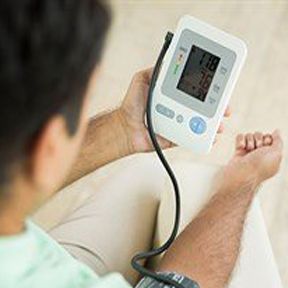
Mar 14 , 2017
2 Comments
Hyperglycemia - High Blood Sugar Symptoms, Causes and Treatment
Hyperglycemia is a condition in which the blood glucose levels shoot up dangerously. The condition is characteristic of type 1 diabetes, type 2 diabetes and prediabetes. Hyperglycemia can also be caused due to factors other than diabetes like pancreatitis and Cushing’s syndrome among others.

Types of Hyperglycemia
It can broadly be classified into two main categories -
Fasting Hyperglycemia - This type occurs when you haven’t had anything to eat or drink since past 8 hours and your fasting blood sugar levels cross 130 mg/dL. On the same hand, for a normal person this level ranges from 70-99 mg/dL.
After Meal or Postprandial Hyperglycemia - If the blood sugar levels exceed 180 mg/dL after two hours of a meal, chances are you are suffering from this form. Usually, the normal blood glucose levels should not be more than 130 mg/dL.

Impacts of Hyperglycemia
Continuous exposure to high blood sugar levels can damage your nerves, blood vessels and even vital organs. In case of type 1 diabetes, this can lead to a potentially fatal condition - diabetic ketoacidosis. The body starts breaking down stored body fat for energy and produces ketones in the process making blood dangerously acidic.
Hyperglycemia can be lethal in case of type 2 diabetes as well, triggering a condition called hyperglycemic hyperosmolar nonketotic syndrome (HHNS). In this condition, the body is no longer able to process sugar.

Five Causes of Hyperglycemia
High blood sugar can be caused due to the following reasons-
- Skipping your insulin dose or glucose-lowering medicine.
- Over consumption of carbohydrates causes an imbalance between the blood sugar and insulin levels.
- Inactivity or less than usual activity.
- Undue stress can take its toll on your body.
- Excess physical activity when your body sugar is already high.
Symptoms of High Blood Sugar
Hyperglycemia shows mild symptoms at first. But, due to prolonged exposure to high blood sugar, these symptoms deteriorate. We will take you through both the set of symptoms -
Early Symptoms
The sooner the condition is diagnosed the better. Here are a few signs to look out for-
- Increased thirst and frequent trips to the loo (especially at night).
- Blurred and unclear vision.
- Fatigue and unexpected weight loss.
- Severe unprecedented headaches.

Prolonged Symptoms
The following symptoms will be observed if hyperglycemia persists untreated resulting in concentration of toxic acids in your blood and urine-
- Skin and vaginal yeast infections which lead to thrush.
- Organs like eyes and kidneys get damaged.
- Slower healing of cuts & scrapes.
- Leads to nerve damage which cause insensitive feet, erectile dysfunction and loss of hair.
- Upset stomach suffering from constipation or diarrhea.
- Fruity-smelling breath.

The Right Treatment
Are you suffering from diabetes and observe any of the above symptoms? Go, give your doctor a call. You can expect the following changes to your routine -
-
Drink more water - Water is rightly called the elixir of life. It flushes the excess sugar in your blood and keeps you hydrated.

-
Exercise - Now this is a tricky matter with exercise being proven to be both favourable and detrimental, depending on the type of diabetes and presence of ketones in urine. In case of type 1 and ketone presence in urine, DON’T exercise. However, in case of type 2 diabetes,the doctor MAY well give you the go ahead to exercise.

- Eating habits - There needs to be a strict balance between your diet and the insulin levels in your blood. To achieve this, you are advised to consult a dietician. Medicine Again, this is up to the doctor’s discretion. He may change the dose, type and timing of your diabetes medicine depending on the need.

One thing that can help with your diabetes is the ayurvedic medicine BGR-34. It is free of any side-effects and can work wonders. Consult your doctor before ordering.







2 Comments
Bgr 34 is good tablet
Hope there is no side effects for prolonged use. I have been taking BGR 34 from last 9 months